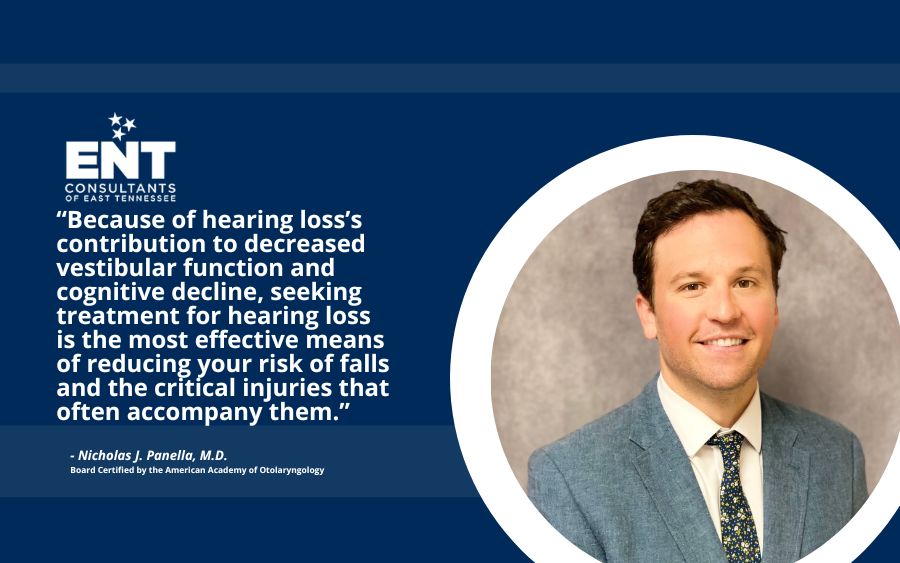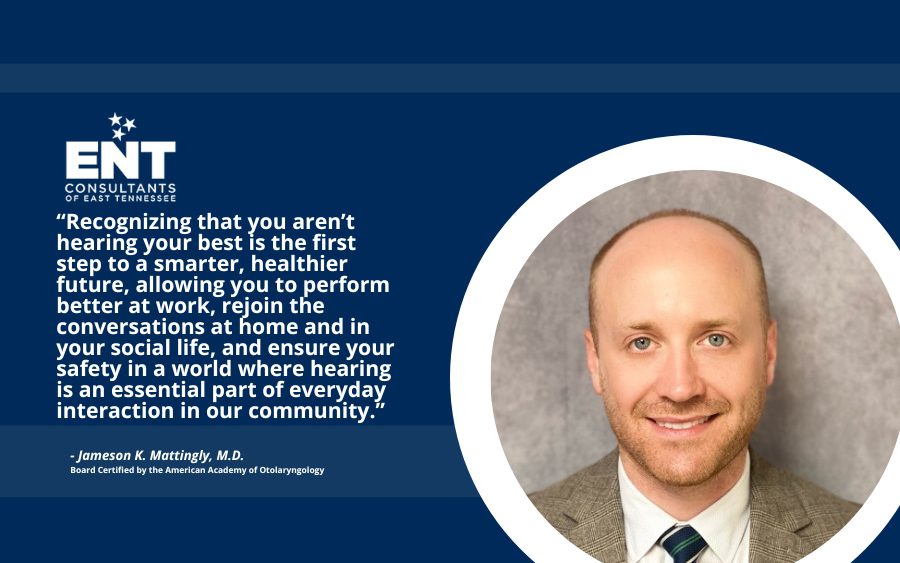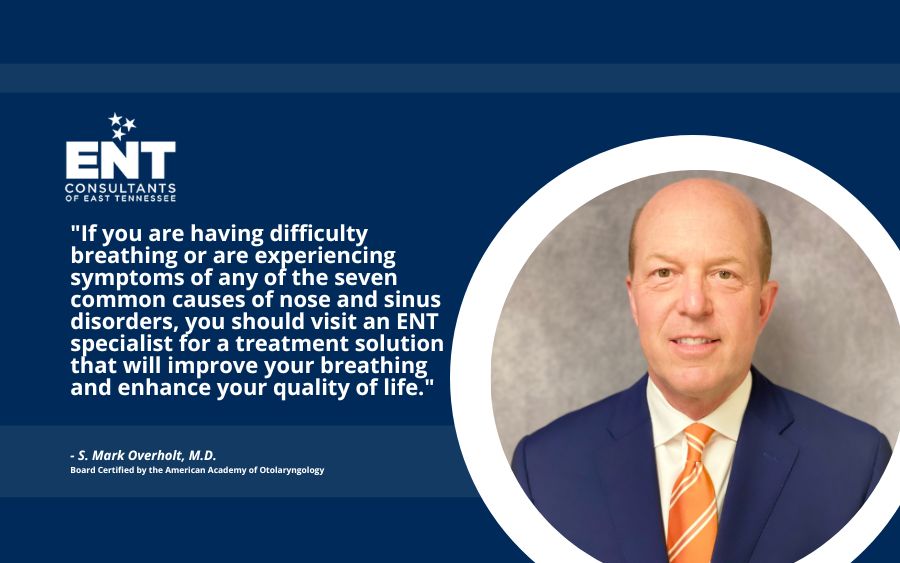Do you feel a little less confident walking on uneven terrain or navigating stairs than you used to?
This is among the common signs of hearing loss and it is related to balance.
Joseph Sakumura, AuD, and Richard Gans, PhD, recently published a study in the Journal of the American Academy of Audiology that shows those with decreased auditory function have a higher risk of falling.
This is of critical importance because falls are responsible for over 800,000 hospitalizations and 27,000 deaths annually in the United States, according to CDC statistics.
Let’s take a closer look at what the study reveals.
3 Conditions Contribute to a Higher Risk of Falling
In the study, cognitive, vestibular, and auditory functions were evaluated in connection with fall risk management. How much do they affect your fall risk? According to the data:
01 Those with reduced auditory function or hearing loss have a 3x higher risk of falling than those with normal hearing.
02 Individuals struggling with vestibular dysfunctions have a 12x greater fall risk.
03 Those with just mild cognitive impairment could have a 14x higher risk of falling due to deteriorating postural stability.
Vestibular Dysfunction and Hearing Loss
Initially, you might assume that hearing loss leads to the lowest increase in risk of falling, at only three times the risk, but your ears play a significant role in vestibular function as well.
The vestibular system in your ears is responsible for providing 85 percent of the sensory information necessary to help you remain steady on your feet.
Inside the inner ear are hair cells that assist with transforming sound signals into the impulses your brain uses to interpret sound. They also deliver sensory information necessary for you to maintain your balance.
The deterioration or damage of these hair cells leads to permanent sensorineural hearing loss, while at the same time reducing the capacity to deliver accurate sensory information needed to keep you steady on your feet.
Unfortunately, the other 15 percent of vestibular function, which includes vision and/or somatosensory (related to muscles and joints) functions, are often comorbid health conditions that further amplify your risk of falling.
Hearing Loss and Cognitive Decline
The greatest increase to risk of falling is associated with cognitive decline. Because hearing loss contributes to cognitive decline, it also amplifies your risk of falling.
The authors of the study note that
“patients with even mild cognitive impairment in domains of; visuo-spatial processing, executive function, memory recall, and reaction times are 14 times more likely to have degraded postural stability and elevated fall risk.”
They also note that hearing loss is the number one “modifiable” risk factor for cognitive decline, which means addressing your hearing loss is the most effective way to reduce cognitive decline and your risk of falls.
Why Treating Hearing Loss Is Essential
Because of hearing loss’s contribution to decreased vestibular function and cognitive decline, seeking treatment for hearing loss is the most effective means of reducing your risk of falls and the critical injuries that often accompany them.
A 2015 study conducted at Washington University, St. Louis demonstrated that participants performed better on balance tests with their hearing aids on and worse when they were not in use.
City University of New York (CUNY) provided further evidence to support the WU, St. Louis study in 2021, reporting that improved balance and decreased frequency of falls are associated with the use of hearing aids.
Schedule a Hearing Assessment
Falls often lead to critical injuries or can be fatal. As the study shows, the best way to reduce your risk of falling is to consider improving your auditory function by seeking treatment for your hearing challenges.
ENT Consultants of East Tennessee can help you reduce your risk of falling with comprehensive hearing care, balance testing, and solutions to improve your capacity to remain steady on your feet.
Give us a call at (865) 693-6065 or click here to schedule a hearing assessment.





